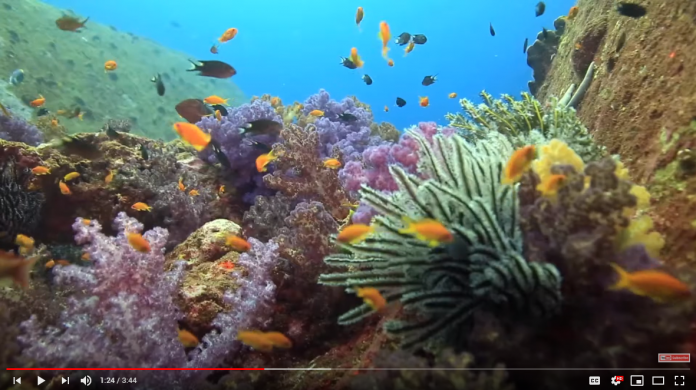An Australian news site, InQueensland, reports that a new study has found that there are 25 percent more coral reefs on Earth than previously thought. This is good news showing that corals are resilient in the face of climate change, which data indicates is not harming them.
The article, “Happy days: Queensland researchers discover that Earth has 25 per cent more coral reefs than we thought,” describes a new study done by researchers at The University of Queensland, which used satellite images, on-the-ground knowledge and references, and machine learning, to map out coral reefs around the world.
InQueensland reports, “the scientists found an extra 64,000 square kilometres of coral reefs – an area the size of Ireland,” that were unknown and unmapped. This is great news, since coral reefs support a large number of marine animals, according to the article, “[t]hese wonders of biodiversity are home to a quarter of the ocean’s species.”
Unfortunately, amid this good news, the article’s writers had to throw in some unsupported climate alarm, writing that that “coral reefs are reeling” because “[c]limate change is steadily heating up the sea and making it more acidic.”
It may be true that coral polyps, the anemone-like animals that actually build the reef structure, can struggle in “too much” heat, but oceans are nowhere near those levels. As explained in Climate at a Glance: Coral Reefs, corals typically thrive in warmer waters, not cold, and have survived for the past 60 million years, through periods where temperatures and carbon dioxide levels were far higher than they are today. The vast number of corals exist in tropical or subtropical waters, near the equator, and rather than disappearing, have been expanding their range slightly towards the poles amid recent modest warming
It is true that corals can get shocked and suffer a bleaching event, where the symbiotic algae that gives coral their color dies or disappears, when temperatures change dramatically in a short period. This is not the same thing as coral death, however. While the algae may be gone, the polyps themselves are often still alive, and the algae often returns and recolonizes the coral structures. InQueensland’s writers should be well aware of this fact, since one of the best examples demonstrating that coral bleaching is not tantamount to coral death comes from Australia’s Great Barrier Reef (GBR). As covered by Climate Realism here, here, and here, for example, the GBR has undergone repeated regional bleachings and recoveries amid recent warm temperature anomalies. The GBR is now setting records for coral extent in modestly warmer seas.
Climate Realism has also refuted the claim that oceans are acidifying threatening crustaceans, shellfish, and other ocean species in multiple articles, here, here, and here, to cite a few. Surface ocean waters may have fallen by about 0.1 pH units since 1750, from 8.2 to 8.1 on the pH scale, though it is unclear if that is more than a regional and temporary drop. But regardless, 8.1 pH is still alkaline and not at all acidic. A fluid is not acidic until it drops below 7 on the pH scale, and there is no evidence suggesting that even a doubling of atmospheric carbon dioxide – we are already half-way there – would cause the oceans to become acidic. Regardless, ocean pH is not the same everywhere, and in reality, ranges from about 7.8 to 8.5. Different corals can and do already exist in a variety of pH conditions.
It is great news that more coral reefs are constantly discovered, whether by technically complex methods using remote sensing like the one covered in the InQueensland article, or by on-site surveys. Based on this new study and others like it, there is no reason whatsoever to twist the good news of newly discovered coral abundance into another doomsaying tale, falsely claiming that corals are being harmed by the modest warming of the past hundred-plus years. Instead, the knowledge that there are likely more reef systems to discover, should give readers some reassurance that corals are more resilient than the alarmist media often claims.

















